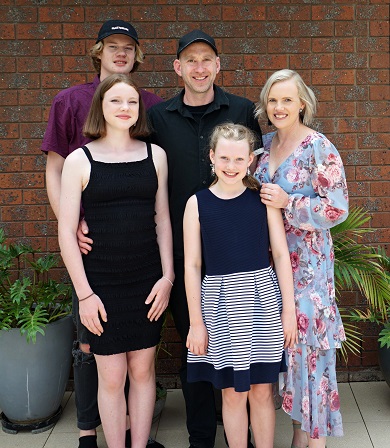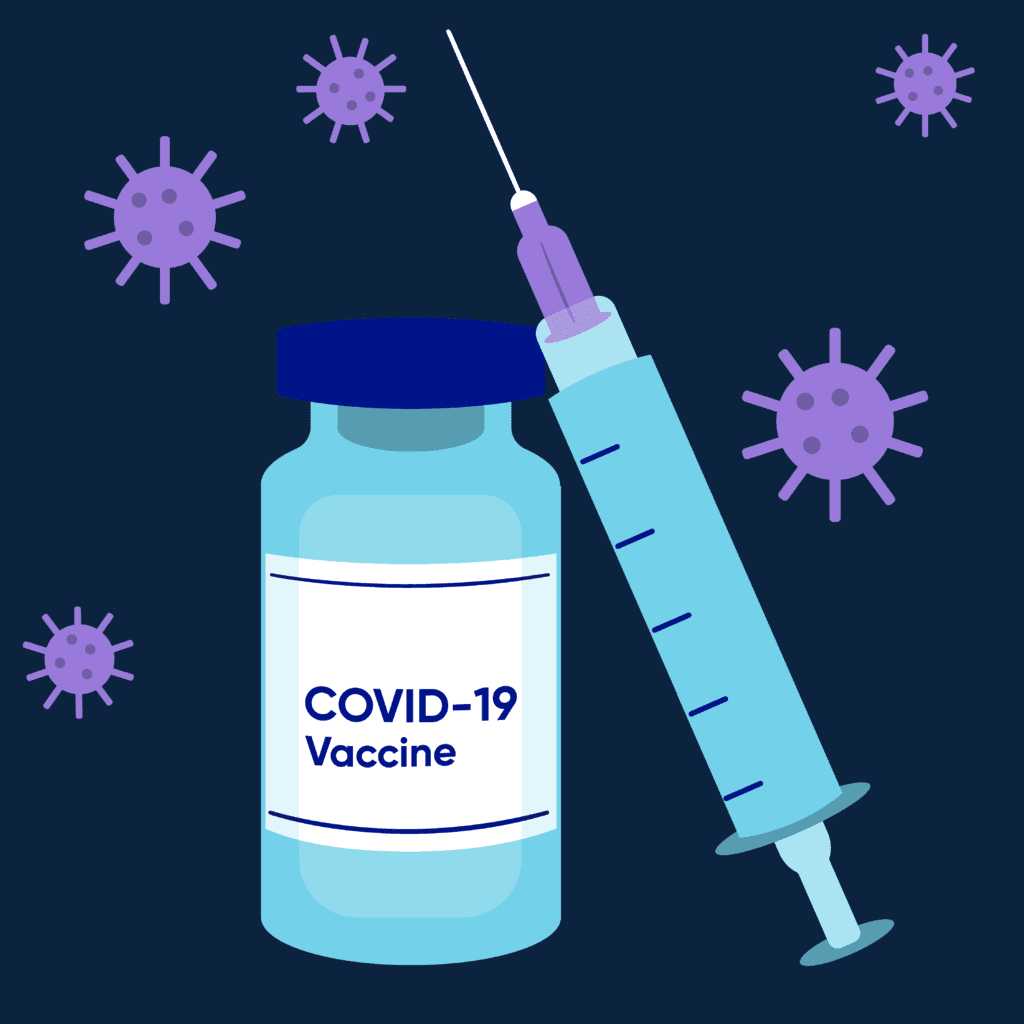My COVID-19 vaccine experience

Blood cancer survivor and midwife, Catherine Wheeler shares her experience being eligible for the Phase 1a COVID-19 vaccine rollout.
Catherine was diagnosed with follicular non-Hodgkins lymphoma in 2013 when she was 34 years old.
“My children were 11, six and three years old at the time and explaining my diagnosis to my them was the hardest part,” said Catherine.
“I continued to work as a midwife through treatment, only taking sick leave for when I was undergoing chemotherapy.
“I found this was really difficult emotionally and experienced compassion fatigue.”
Catherine was a part of the GALLIUM clinical trial where she was treated with a combination therapy of bendamustine and obinutuzumab.
“I completed treatment but due to severe neutropenia, I only had one maintenance dose,” she explained.
“I completed remission but have had ongoing low white cell and platelet count with the return of some small but stable enlarged nodes.”
Throughout the COVID-19 pandemic, Catherine has not taken any time off work but was identified as high-risk and avoided the birth suites during the first and second waves of the virus.
“The risk still felt very real though, as we suspected women on our ward had COVID-19 at times,” she said.
Catherine was contacted by her workplace as being eligible for the Phase 1a rollout of the COVID-19 vaccine due to her status as ‘high risk’ by the health service assessment panel.
“This panel reviewed my risk based on the self-disclosure of my lymphoma and low white cell count,” explained Catherine.
“This was also in consultation with my treating team which are based at the health service I work for.”
Catherine had no concerns about having the vaccine as she put her trust in the research.
“Medical research and doctors have saved my life,” said Catherine.
“The risk of exposure to COVID-19 was far more real for me than any small risk of side effects.”
“I always feel reassured when I get the flu vaccine every year and I am always up to date with my vaccinations.
“I’m not just protecting myself, but also the vulnerable newborn babies and pregnant women I care for.”
Click here to read more about the COVID-19 vaccinations and the eligibility of people living with blood cancer.

“I just had to call and book my vaccine appointment through an employee immunisation clinic,” said Catherine.
“It felt no different to a tetanus vaccine…I felt completely normal apart from an achy arm for two days afterward.
“I had my second dose recently and only had a bit of sneezing a couple of hours later.
“My advice is to consult with your haematologist or treating team about your individual circumstances.
“For me, I felt the benefits of having the vaccine far outweighed any potential risks.”
Last updated on July 13th, 2022
Developed by the Leukaemia Foundation in consultation with people living with a blood cancer, Leukaemia Foundation support staff, haematology nursing staff and/or Australian clinical haematologists. This content is provided for information purposes only and we urge you to always seek advice from a registered health care professional for diagnosis, treatment and answers to your medical questions, including the suitability of a particular therapy, service, product or treatment in your circumstances. The Leukaemia Foundation shall not bear any liability for any person relying on the materials contained on this website.